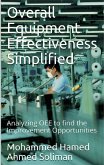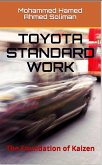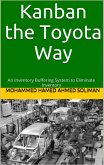Heijunka (Japanese for "production smoothing or levelling"): It is a technique used to smooth out production in all departments as well as that of the supplier over time in order to facilitate Just-In-Time (JIT) production. It means production levelling (finding and maintaining average production volumes). The fundamental goal of using the Heijunka technique is to supply goods at a steady rate so that upstream and downstream operations can likewise run at a steady and predictable rate, hence lowering the inventory. The heijunka technique works by leveling both the production volume and the product mix. It doesn't build products according to the actual flow of customer orders, which can swing up and down widely, but takes the total volume of orders in a period and levels them out so the same amount and mix are being made each day. Heijunka is a technique that helps reach the defined takt time and adds value to it.
Dieser Download kann aus rechtlichen Gründen nur mit Rechnungsadresse in A, B, CY, CZ, D, DK, EW, E, FIN, F, GR, H, IRL, I, LT, L, LR, M, NL, PL, P, R, S, SLO, SK ausgeliefert werden.









